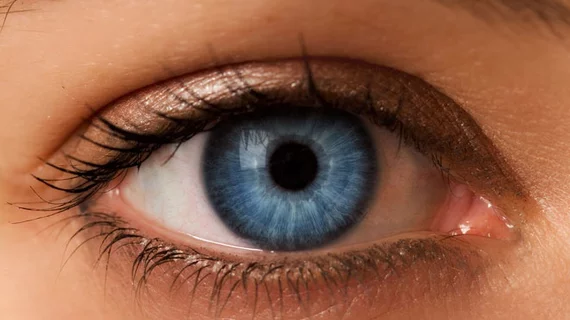Smart photonic contact lens diagnoses diabetes, treats retinopathy
The future of diabetes diagnosis and management could lie in a “smart” LED contact lens, a study published in Nature Reviews Materials suggests.
The study, led by Pohang University of Science & Technology (POSTECH) professor Sei Kwang Hahn, involved inventing and testing a smart photonic contact lens that could diagnose diabetes and treat diabetic retinopathy. The new wearable has attracted considerable attention in recent months, and, according to a statement from POSTECH, could revitalize the way we look at diabetes diagnosis and treatment.
Hahn et al. developed a smart lens that integrated micro LED tech and a photodetector into contacts, which diagnose diabetes by measuring the glucose concentration in a person’s conjunctival blood vessels and analyzing non-infrared light. They tested the LED lenses in rabbits with diabetic retinopathy and found that, after being exposed to irradiated light repeatedly for a month, the animals demonstrated a significant reduction in retinal angiogenesis. That verified the clinical feasibility of the lenses to treat diabetic retinopathy.
Hahn said the new wearable will not only allow diabetic patients to monitor their blood sugar in real-time, but it will enable medical treatment for retinopathy caused by diabetic complications.
“We developed a smart LED contact lens that can diagnose diabetes and treat diabetic retinopathy with light for the first time in the world,” he said in a statement. “We are planning to commercialize these smart contact lenses and smart wearable medical devices in collaboration with Stanford Medicine.”
Preliminary clinical tests are expected in the first half of 2020. Hahn said the team is also in the process of developing a smart wearable that can perform highly sensitive analysis of glucose concentrations in sweat—another potential avenue for diabetes diagnosis.

